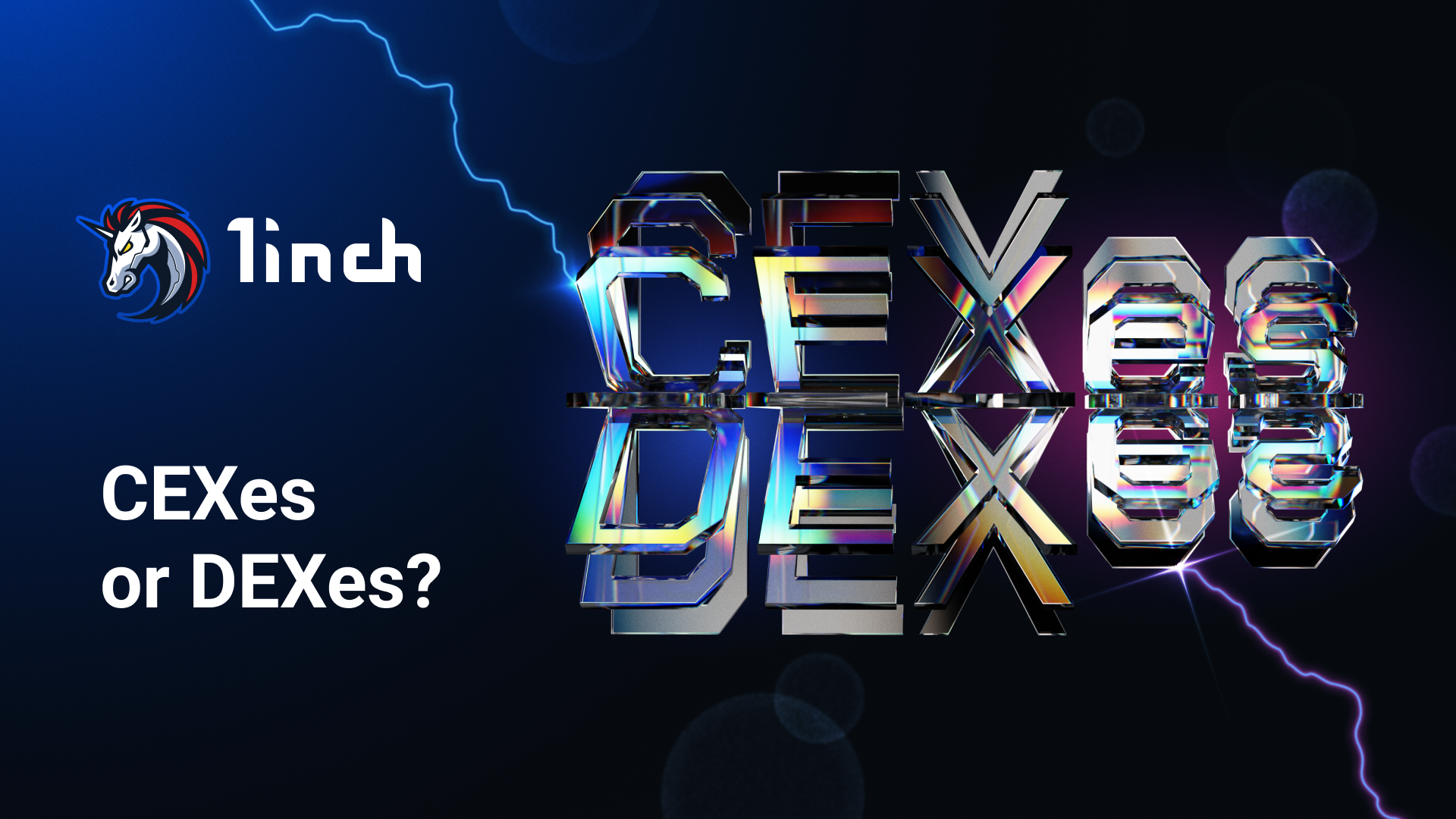Cryptocurrency exchanges: what's the difference between CEXes and DEXes?

The understanding of differences between CEXes and DEXes empowers users to have better control over fees, privacy and asset availability.
Key takeaways:
Cryptocurrency trades are handled through exchanges, which could be divided into centralized exchanges (СEXes) and decentralized exchanges (DEXes). These types of exchange platforms differ fundamentally in their approach to custody. They also have different processes for exchange, governance and providing liquidity. Liquidity is a key concept for crypto exchanges.
At this point, CEXes and DEXes offer more or less the same trading opportunities. In the early development stages, DEXes lacked the derivatives trading, futures and options features. Eventually, an increasing number of DEXes and other DeFi platforms started to make these features available to traders.
Centralized exchanges(CEXes)
CEXes, such as Coinbase, Binance, Gemini etc., are run by centralized organizations controlling the exchange’s ownership. A CEX operates as a middleman for users’ trades, managing a central trading desk.
- User fund custody: a CEX assumes custody of the assets users trade once they deposit funds into an exchange account.
- Governance: сentralized exchanges are governed entirely by a centralized private entity, which controls all the transactions and sets the platform rules.
- Trading: CEXes use the order books model matching buyers and sellers, similar to the mechanism used within the traditional finance system. Buy and sell orders offering different rates shape the exchange’s order book. To make a swap, a user must agree with a price set by the seller of a specific token. To make a trade, a counterparty is needed.
- Liquidity: CEXes rely on in-house reserves and market makers - traders with high trading volume who place orders in their books.
Decentralized exchanges (DEXes)
Decentralized exchanges (such as Uniswap, Sushiwap, PancakeSwap etc.) function without a centralized authority. They allow users to trade with one another directly from their wallets.
- User fund custody: users trade on DEXes in a self-custodial manner via crypto wallets, retaining complete control over their assets.
- Governance: a DAO - decentralized autonomous organization - is the most common form of DEX governance. Under a DAO, users can influence the main processes and decisions through voting, as well as make proposals concerning the development of the decentralized exchange. In order to participate in governance, a user usually has to meet certain conditions, such as staking the platform’s native tokens, for instance.
- Trading: DEXes do not involve counterparties and order books, since finding a trading pair is performed by an automated market maker (AMM). A user interacts with a smart contract. And the asset’s price is automatically determined by a special algorithm that calculates it based on the tokens in the liquidity pool.
- Liquidity: by locking tokens into liquidity pools driven by smart contracts, users ensure liquidity and receive passive revenue from every trade made on a DEX.
What are the advantages of CEXes?
- High liquidity. Institutional investors and user pools can create significant liquidity, allowing users to quickly transact any amount of crypto.
- No illiquid assets. Those are promptly delisted from an exchange by its centralized management.
- Advanced trading features. Overall, CEXes and DEXes offer similar trading opportunities. Still, some features might be introduced more fully on CEXes. For example, some platforms offer P2P marketplaces to choose a buyer or a seller.
What are the disadvantages of CEXes?
- Asset loss risks for users. A CEX keeps users’ assets and has access to them. Hypothetically, there is a risk of losing the coins as, being a central database, a CEX is attractive for hackers hunting for users’ private keys. If a CEX shuts down, users can also lose their funds.
- Lack of confidentiality. Under the KYC (know your client) procedures, CEXes collect customers’ data.
- Regulations. A CEX is regulated by third-party providers and is subject to local regulations. Thus, certain users’ accounts can be frozen at the request of authorities. The latter can also access users’ personal information and ask them to provide additional documents to move their assets.
- High trading fees. CEXes likely have higher transaction fees.
What are the advantages of DEXes?
- Users have full control of assets. As the exchange does not keep users’ funds and does not have access to them, users are guaranteed greater security.
- Traders’ privacy. Users are not required to give up personal information, hence they won’t face data leakage. Plus, no organization can access and use traders’ personal information or assets.
- High level of security. Since user funds are not stored on DEXes, the latter are less attractive to hackers. Transactions’ safety is provided by smart contracts, whose code is regularly audited and optimized by reliable DEXes with the help of security firms.
- Lower trading fees. Transaction fees can be lower than those on CEXes, and they are then shared among liquidity providers rather than going to any centralized body.
- Easy onboarding. The absence of requirements to submit personal data or documents makes the onboarding process and interaction with DEXes faster and more efficient.
What are the disadvantages of DEXes?
- The presence of illiquid tokens. As liquidity and market-making are handled by regular users, illiquid tokens may not be delisted instantly.
- Liquidity might be lower: The liquidity of some platforms may be less than that of major CEXes.
Network/gas fees: Since DEXes conduct on-сhain transactions, network/gas fees can increase during high blockchain demand periods. Still, there are ways to swap without paying gas fees.



























